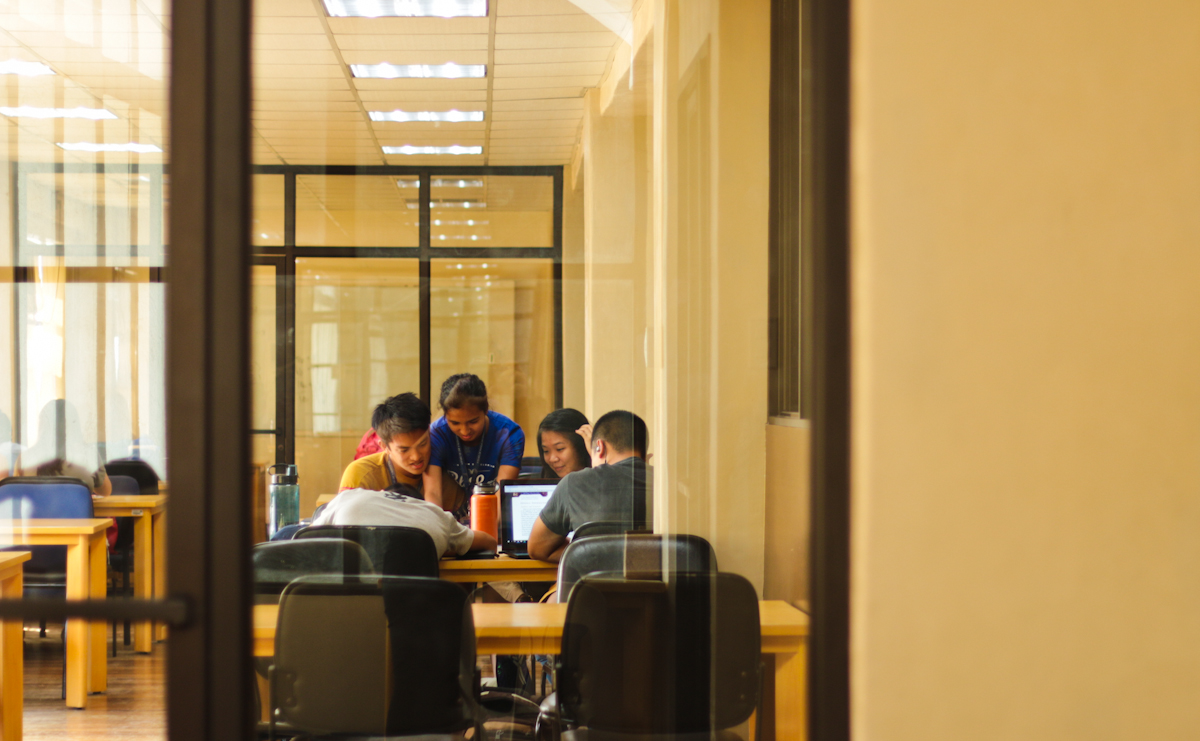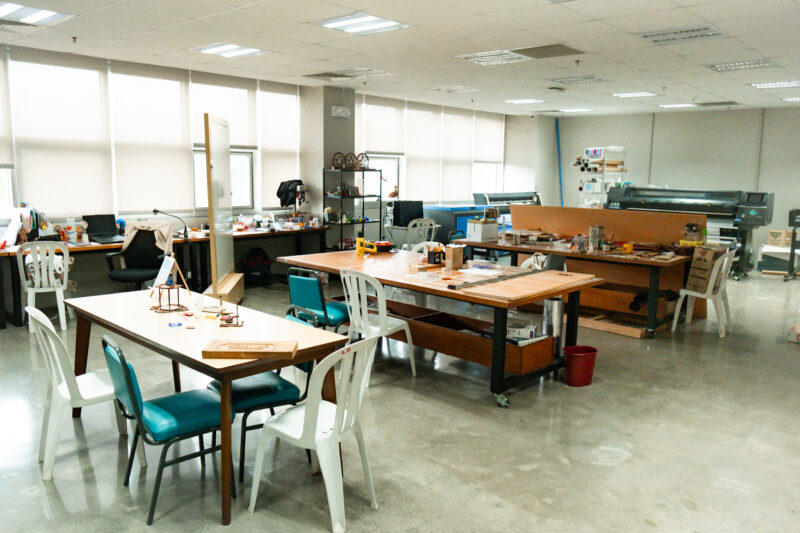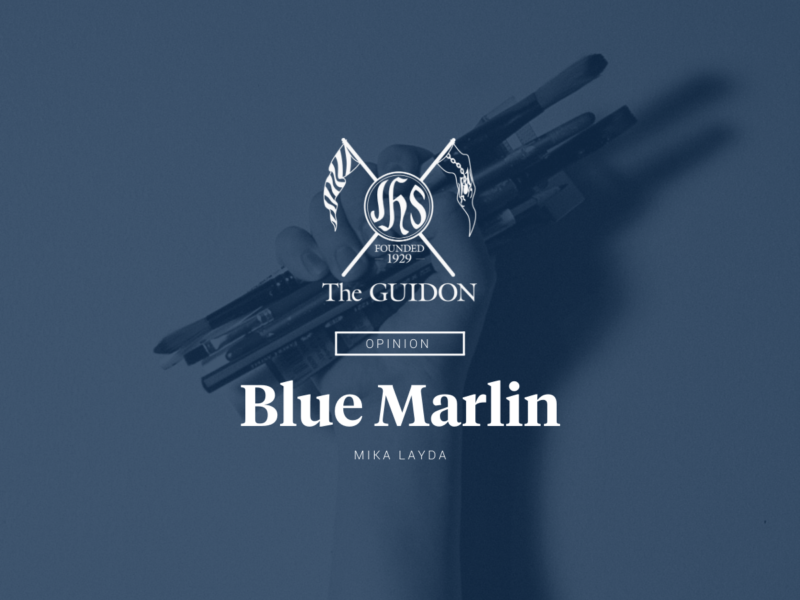THE STUDY hall for athletes was first implemented in 2012, with the objective of instilling the habit for student athletes to maximize their free time by studying. It was also implemented as a way for the Athletics Office to monitor the academic standing of the student-athletes.
“We recognize that each athlete has his or her own diskarte when it comes to studying but of course one [critical] difference between students and student-athletes is a lack of time” imparted College Athletics Office Director Benjo Afuang.
Student-athletes follow an inconsistent schedule; between training, game schedules and athletic requirements, there seems to be barely any time for them to put in effort in academics. Because of the time constraints, the study hall requirements are considered to be a “hassle” by the student-athletes themselves. Afuang postulated that this maybe due to the fatigue they experience from training, which prevents them from taking it seriously. Despite this, the players are encouraged to participate in the study hall and meet their required hours.
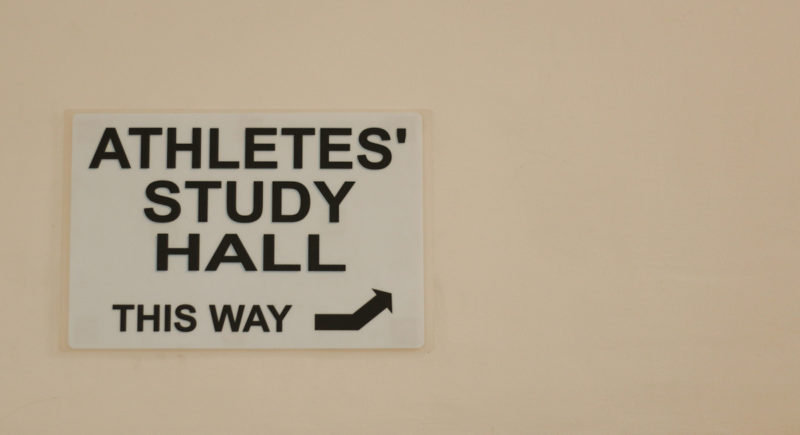
New Initiatives
This year, each athlete’s academic records are filed accordingly. Every week, they are required to report their academic progress involving their papers, long tests and short quizzes, as well as give updates about their attendance.
Academic Advisor Mona Bagatsing commented that the initiative has to be done: “In the past years, it has always been you just see the student-athlete and then you ask them how their grades are, then they say okay lang then by the end of the semester we find out nalang na parang sobrang layo nila from the [required] QPI.”
The study hall began as a program for scholars as a part of their scholarship, but this school year, the program was expanded to be inclusive of all athletes. Now, all Ateneo athletes recognize the existence of the study hall. The program is an offshoot of different athletic programs from Jesuit universities in the states; University Athletics Office (UAO) Assistant Director Erika Dy took it upon herself to observe how college sports programs abroad were run, thus the study hall initiative was reborn:
Each student-athlete has a different situation with regards to their academics, so the study hall program is divided into four different levels.
- Level 1: QPI below the minimum requirement of their year level. This level also includes freshmen or rookies. 8 hours of required study hall per week. Weekly meetings with academic advisor.
- Level 2: QPI exactly at the minimum (according to year level) or has at least one F or two Ds. 6 hours of study hall a week. Meeting with every two weeks with academic advisor.
- Level 3: QPI of 2.5-2.99. 4 hours of study hall every week. Monthly meeting with academic advisor.
- Level 4: QPI of 3 or higher. No study hall requirement. No required meeting
Slacking off or not meeting the required study hours also warrants specific punishments for each infraction:
- Miss meeting once/ Failure to do required hours: Program head/head coach gets a notification letter.
- Miss meeting twice/ Failure to do required hours: Meeting with head coach and UAO Director Emmanuel Fernandez.
- Miss meeting thrice/ Failure to do required hours: Specific number of days Suspension from either training/game day.
- Miss meeting the 4th or 5th time: Week-long suspension.
Some of the coaching staff of different sports go so far as to having corresponding punishments in training whenever they receive notification letters apart from game suspension. However, the problem is that some of the athletes do not fear the suspension anymore. Currently in the second semester of the university, teams that are done competing in the first semester tend not to mind the suspension.
Despite this, Bagatsing believes that in time the mindset about study hall will change for the better. “Trying to inject it into the routine [of the seniors] like that is very hard” she says. “But by the time those batches graduate, [the mentality] is going to be normal nalang.”
One of the bright points of the program is that no one is exempt from it; a seasoned veteran can have the same amount of required hours as a freshman rookie until they achieve academic progress or reach the next level.
Achieving the QPI of the next level does not guarantee advancing to a different level in the study hall program, though. According to Afuang, it is still up to the advisors whether or not the athlete is ready for less supervision.
Results
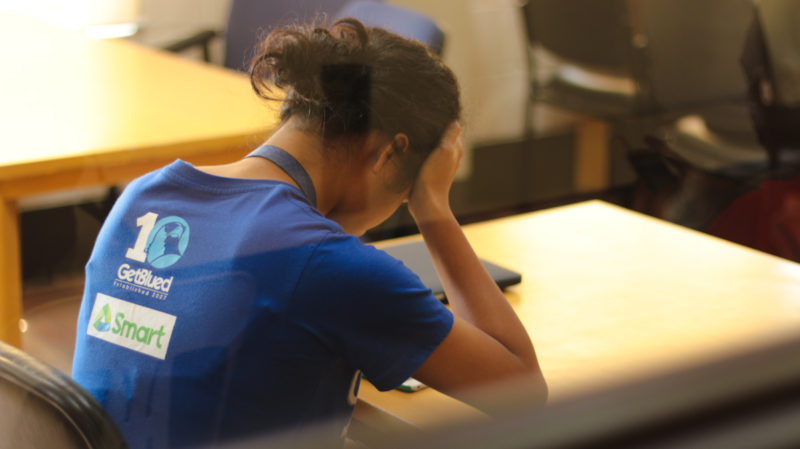
When asked about the effectiveness of the program, Afuang responded by saying: “It’s difficult to say if it was effective in improving the grades of the student athletes. It was effective for some and not for others, but I can’t take credit for the effectiveness, it’s still the student who does the work.”
He also mentioned that besides the improvement of study habits among the athletes, they also noticed how some watch each other’s games. An indirect effect of the program is bringing the athletes from different sports together, rather than just knowing their male or female counterparts.
As for any improvements that could be added to the program, Afuang mentioned that there is a lack of personnel handling the program. There are six academic advisors for about 500 student athletes handling a different array of subjects ranging from mathematics, theology and even philosophy. The venue could also be improved and expanded, as the study hall would usually have waiting lines. With some students taking courses that have very few reviewers and difficult subject matter, additional learning materials should also be added.
The revised academic program has its highs and lows but if anything, it is inaccurate to say that it’s not making an impact. The program itself has actually done wonders for morale and student-athlete unity according to Bagatsing. “Because of the study hall, athletes from different sports support each other like the badminton and volleyball teams. Naging friends sila dahil sa study hall tapos nagsusupport sila sa season and pumupunta sila to each other’s games.”
The objective of the program is to monitor the players’ progress; to impart advice and to guide them in their turbulent lives as student athletes. Afuang and Bagatsing both echo the sentiment that it is all about responsibility; the responsibility to show up, to exert effort and to incorporate magis in all aspects of their lives be it sports or academics.
Statistics from last semester from the College Athletics Office (estimates):
- The number of student athletes that improved their levels: 38% of athletes
- Those who moved down: 18% of athletes
- Those who maintained their grade only, but includes freshmen 44% of athletes
- 30 athletes moved down from Level 4
- Those who moved up to Level 4: 23% of athletes

